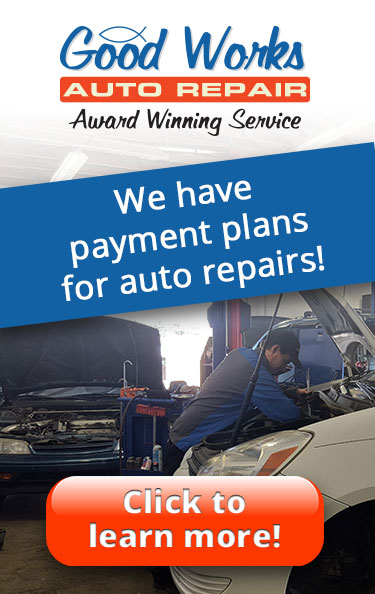One day you’re driving along and your vehicle seems fine and the next you start hearing strange noises coming from inside, behind or underneath. No matter what type of noise you hear – clicking, ticking, popping or screeching – you’ll need to get it to a trusted auto repair shop for a diagnosis and some TLC. Proper vehicle maintenance is important and anyone who owns a car knows that it comes with repairs. At some point, you’ll hear something that’ll grab your attention. How long you wait to get it fixed, though, could mean more money down the road.
Your car is pretty talented – it can go “clunk,” “pop,” “click,” “tick,” and “squeal” without being told to. But where is it coming from? Should you be concerned? Could it be dangerous? Listening to your vehicle and working with a mechanic could keep your vehicle on the road longer and much safer, too.
Does it happen when you’re braking? A clunking noise could mean a problem with your brakes such as worn steering system components, the disc brake caliper is not mounted properly or brake hardware is damaged or missing. A squealing noise when braking could mean several things; dirt on the brake rotors, drums, pads, and/or shoes, brake pads and/or shoes are worn, brake pads were overheated and are now glazed, disc brake calipers were mounted incorrectly or have come loose or wear indicator on the pads are contacting the rotor.
Does it happen when shifting gears and driving? This could mean that the clutch needs to be adjusted, the clutch is worn, could signal internal damage to the transmission or that the shift linkage needs to be adjusted.
Is there squealing when you accelerate? This could mean your drive belts are slipping, the drive pulleys for some engine accessories are misaligned, you have turned the steering wheel to the limits or drive belts are loose.
Do you hear a scraping noise when you’re driving along? You could have a branch stuck to the undercarriage being dragged, your parking brake could be on, your brakes could actually be dragging or brake drum backing plates could be rubbing against the brake drum.
Any noises coming from the back of the car could mean a problem with your brakes. This is a safety hazard and should be addressed immediately. You never want to drive around with failing brakes for obvious reasons.
Finally, if your engine is popping or hesitating, it could mean a dirty air filter, dirty or worn spark plugs, bad spark wires, an ignition problem, a clogged fuel filter, water in your gasoline, a bad accelerator pump or power circuit in your carburetor or a clogged catalytic converter.
No matter what you hear, it is important to have the right repair shop diagnose and repair your vehicle. Funny noises as we’re driving along are nothing to laugh at. Act quick and you’ll be back on the road in no time, driving better and safer than ever.
Schedule My Appointment Now!

